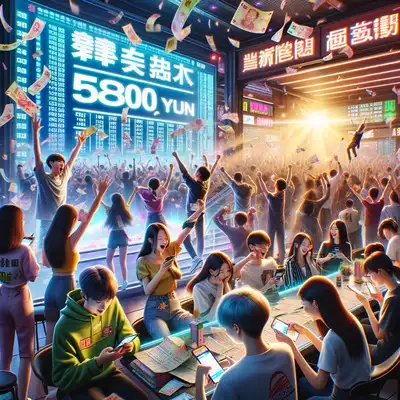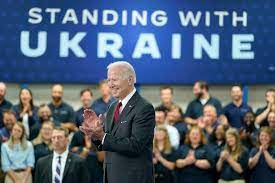Playing lotto helps young Chinese people cope with their economic anxiety
Chinese lottery stores are eschewing their boring storefronts in favour of a hipster hangout with catchy slogans that entice young people who have been affected by the recession with the promise of being wealthy quickly.

“We should not give up on our dreams—who knows when they could come true?” is written on a sign outside a lottery in Chongqing, southwest China. Its motto is “more than just a lottery shop,” and it has stylish outside seating that is reminiscent of a hip café.
In Kunming, the capital of Yunnan province in the southwest, there was another “Lotto Coffee” establishment that offered a free scratch ticket with every coffee purchase. The words “A cup of coffee with good luck” were written on the wall. According to government figures, sales of scratch-offs, which provide rapid results, reached a record high last year, dating back to 2008.
The effort to draw in younger clients is having success. According to statistics from the Finance Ministry, sales of lottery games sanctioned by the state surged to a record 580 billion yuan ($80.6 billion) last year. The majority of those clients were between the ages of 18 and 34, up from slightly more than half in 2020, according to local market research company Mob Data.
That increase coincided with a record high in June for young unemployment in 2023 as China’s enormous economy faltered out of a protracted epidemic of isolation. Graduates face fierce competition for jobs in a labour market that is growing more slowly than it did for their parents.
According to Dominic Chiu, senior analyst at Eurasia Group, people are probably resorting to lottery tickets and other such endeavours to “seek their fortune and success simply because of an increasingly stressful economic environment and job market.”
Before the epidemic, when the economy was doing well, lottery revenues tended to rise. This is because the majority of the customers consisted of lower-class individuals, such as blue-collar workers, who only had extra money when their pay increased. Young, educated, and city-dwelling customers are now driving increased purchases.
Even if China’s manufacturing sector saw a boom at the start of the year, experts caution that the country’s stated growth target of 5% by 2024 is still too high. The attempt by President Xi Jinping to wean China off decades of debt-driven development from the troubled real estate industry implies that a sizable stimulus package is unlikely to be forthcoming.
“No matter what you do, it’s so difficult to make money these days,” Wu Zehao, an 18-year-old first-year film student at Beijing’s Communication University of China, said.
Speaking in front of a lottery store on a bright day in a popular tourist district of the city, Wu said that ever since he won 100 yuan on a recent vacation, he has been spending 30 yuan every day on the lottery. He said, “I genuinely believe that winning the lottery will increase your chances of becoming wealthy more than working.”
China’s dire work conditions might endanger social stability as the country’s unemployment rate increased overall at the beginning of the year. In late 2022, young people spearheaded countrywide demonstrations against COVID lockdowns, which resulted in the repeal of that programme. In a few unusual cases, they even advocated for Xi’s overthrow.
That might help explain why the lotto growth is being tolerated by the government. Since assuming power in 1949 during a civil war, the governing Communist Party has had a contentious relationship with gambling, prohibiting the majority of its forms. As China welcomed profit-making during the reform era, it permitted the lottery to begin operations in the 1980s, promising to use the proceeds for social welfare.
These days, lottery retailers are attempting to reach younger consumers by using language that they understand and appealing to current trends in fashion and lifestyle. One lottery coffee shop serving pistachio croissants in Yichang, in the central province of Hubei, has a big banner above its door that reads, “Americano comes true.” That sounds like “good things come true” in Chinese.
Another billboard outside a lottery store next to a well-known mall in Kunming reads, “What is your dream?” “Get that beachfront bungalow. Obtain financial independence.
A young lady called Guo Tong, who claimed to work in livestreaming, was playing scratch-offs at a mall in Beijing. Although the government has recently tightened restrictions on her sector, she said that it was already difficult to generate money since “way too many pretty girls” were doing it.
Guo now attempts to alter her fate at lottery shops for 100 yuan each time. “This is something we can afford that could also make us instantly rich,” the woman said.







